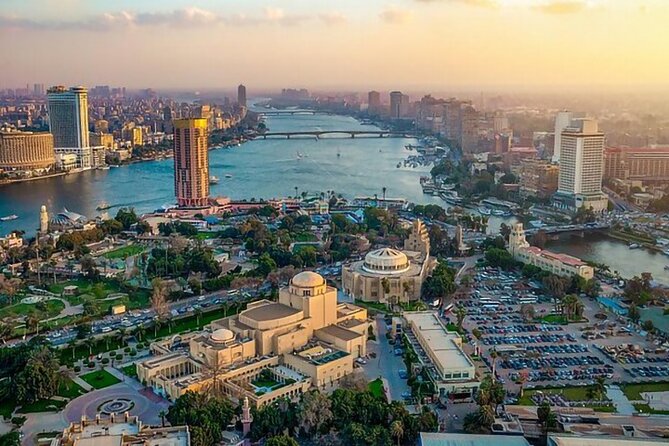Fitch upgrades Egypt’s outlook to positive on reduced financial risks and better FDI
Challenges have been reduced due to the central bank’s move to a flexible exchange rate and the tightening of monetary policy.
Fitch Ratings has upgraded Egypt’s outlook to positive, saying reduced external financial risks and stronger inflows of foreign direct investment helped.
While Egypt’s long-term foreign currency issuer default rating was maintained at “B-“, the outlook was revised to positive from stable, the New York-based ratings agency said.
A “B-” rating, which is “highly speculative”, is six levels from both default territory and investment grade, according to Fitch’s ratings scale. Non-investment grade makes it more difficult for a country to get access capital markets and raise funding that it needs when it wants to borrow.
The move follows a similar decision from S&P Global, which on March 18 upgraded Egypt’s credit outlook to positive from stable on government moves to improve its currency, attract more foreign direct investment and a growing list of donors pledging to support the economy.
Fitch, which downgraded Egypt’s credit score twice in 2023, credited the new outlook to reduced external vulnerability, with near-term financing risks “markedly reduced” because of the Ras El Hekma deal with the UAE.
Egypt in February granted a consortium led by Abu Dhabi’s holding company ADQ rights to develop its Mediterranean city of Ras El Hekma in exchange for $35 billion in cash.
That was part of several financing agreements with regional and international partners totalling more than $50 billion in the first quarter of 2024.
“The Ras El Hekma investment underscores the strength of GCC financial support for Egypt, and Fitch has somewhat greater confidence that exchange rate flexibility will be more durable than in the past,” Fitch said.
Risks have also been reduced due to the central bank’s move to a flexible exchange rate and the tightening of monetary policy, “which also unlocked additional IFI international financial institution financing and the return of sizeable non-resident inflows to the domestic debt market”, it said.
“In addition, initial steps to contain off-budget spending should help to reduce public debt sustainability risks.”
Fitch’s decision also comes after the International Monetary Fund in late March approved an $8 billion loan package for Egypt, which is expected to boost the country’s flagging economy that has also been affected by the Israel-Gaza war.
The programme adds $5 billion to the $3 billion 46-month Extended Fund Facility signed in December 2022 and enables the Arab world’s most populous economy to immediately draw $820 million, the Washington-based IMF said.
The World Bank in March also announced that it would provide $6 billion in financing over the next three years.
“Our somewhat greater confidence that exchange rate flexibility will be more durable partly reflects its close monitoring under Egypt’s IMF EFF,” Fitch said.
Egypt’s economy has faced lots of challenges over the past few years, grappling with rising inflation, foreign exchange shortages and elevated debt levels.
Egypt’s non-oil private sector economy, meanwhile, continued to decline at the end of the first quarter of 2024, with business activity and new order volumes falling at marked rates, according to the headline S&P Global purchasing managers’ index for March.
Businesses surveyed once again indicated that volatile currency markets were hurting customer demand and driving up prices.
The country has felt the effects of the Red Sea shipping disruption as a result of Yemen’s Houthi rebels attacking vessels, which has roughly halved Suez Canal revenue so far in 2024, the ratings agency said.
Fitch said the regional conflict, which includes the Israel-Gaza war, poses a risk to revenue in Egypt’s tourism sector and the Suez Canal trade route, which it predicts to fall 6 per cent and 19 per cent, respectively, in fiscal year 2024.
“While the recent direct strikes between Iran and Israel have raised the risks of escalation beyond Gaza, the apparent rapid containment of the military exchanges limits the potential for a greater spillover,” it said.
“In addition, Egypt faces a lingering risk of greater social instability fuelled by high inflation and structural challenges that include high youth unemployment and weakness in governance.”
Inflation in Egypt soared to 35.7 per cent annually in February, partly due to parallel market depreciation and foreign exchange shortages, before edging down to 33.4 per cent in March, Fitch data showed. The agency projects inflation to fall to 12.3 per cent by June 2025.





